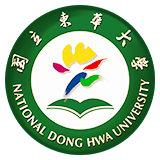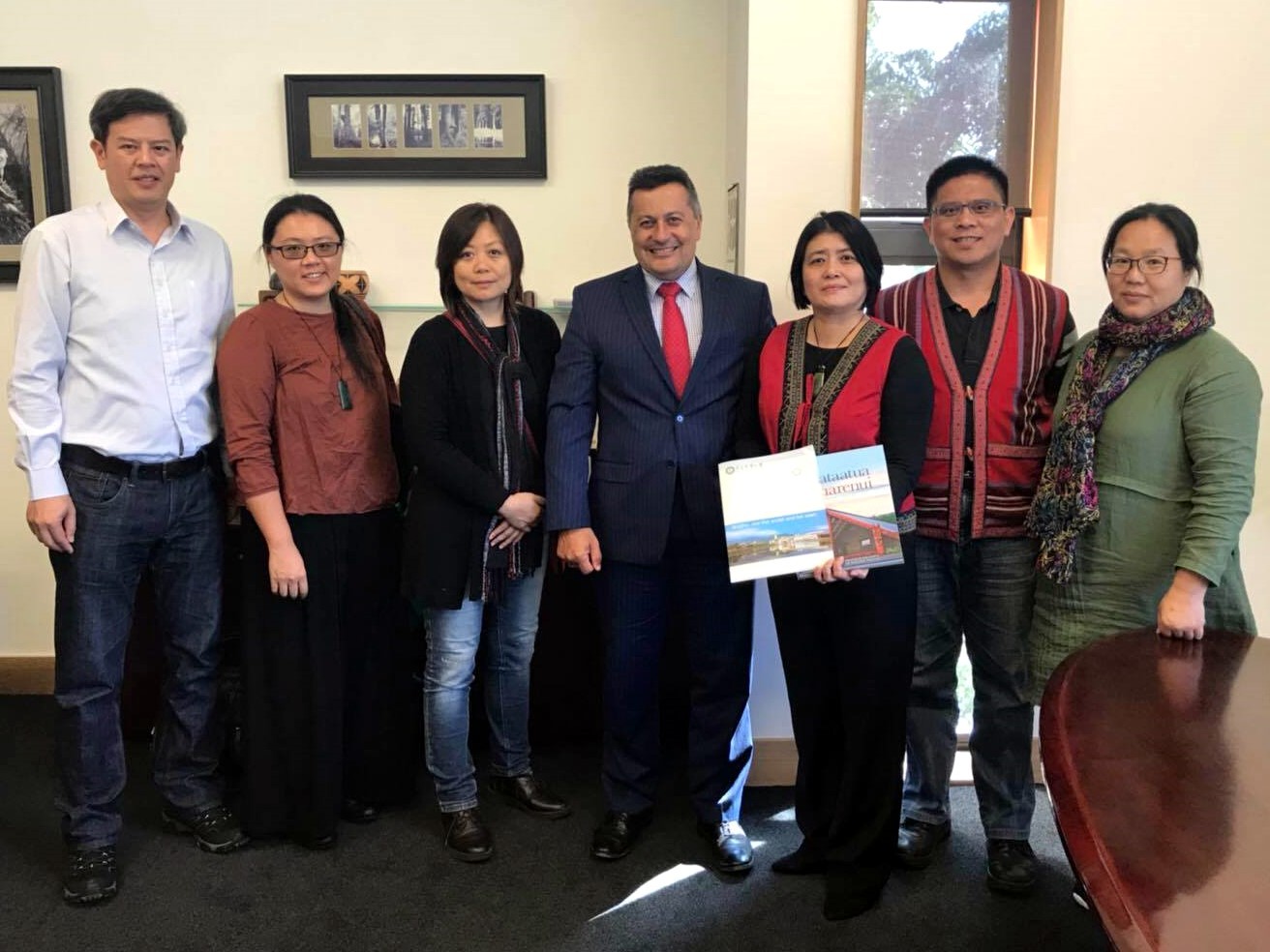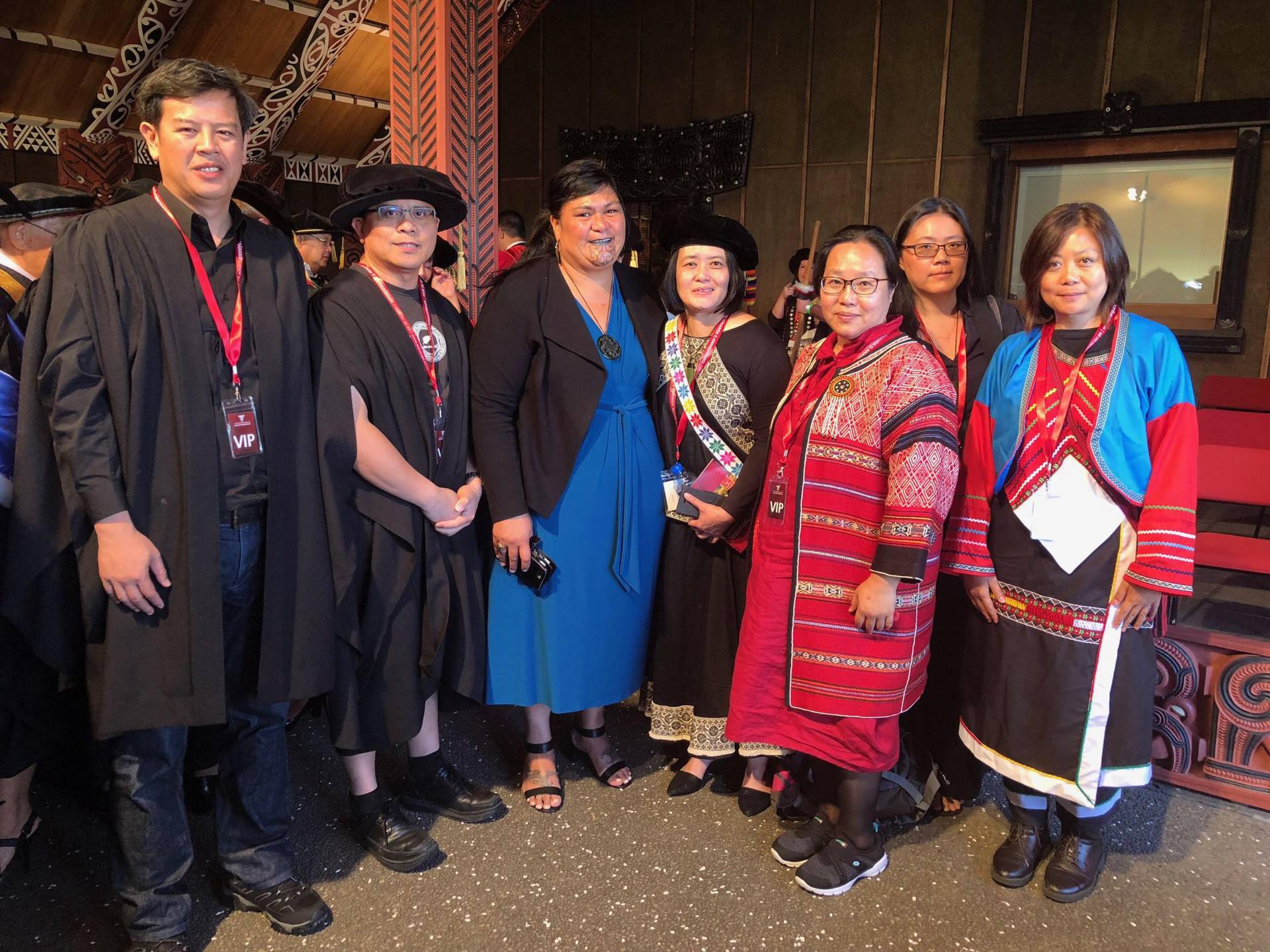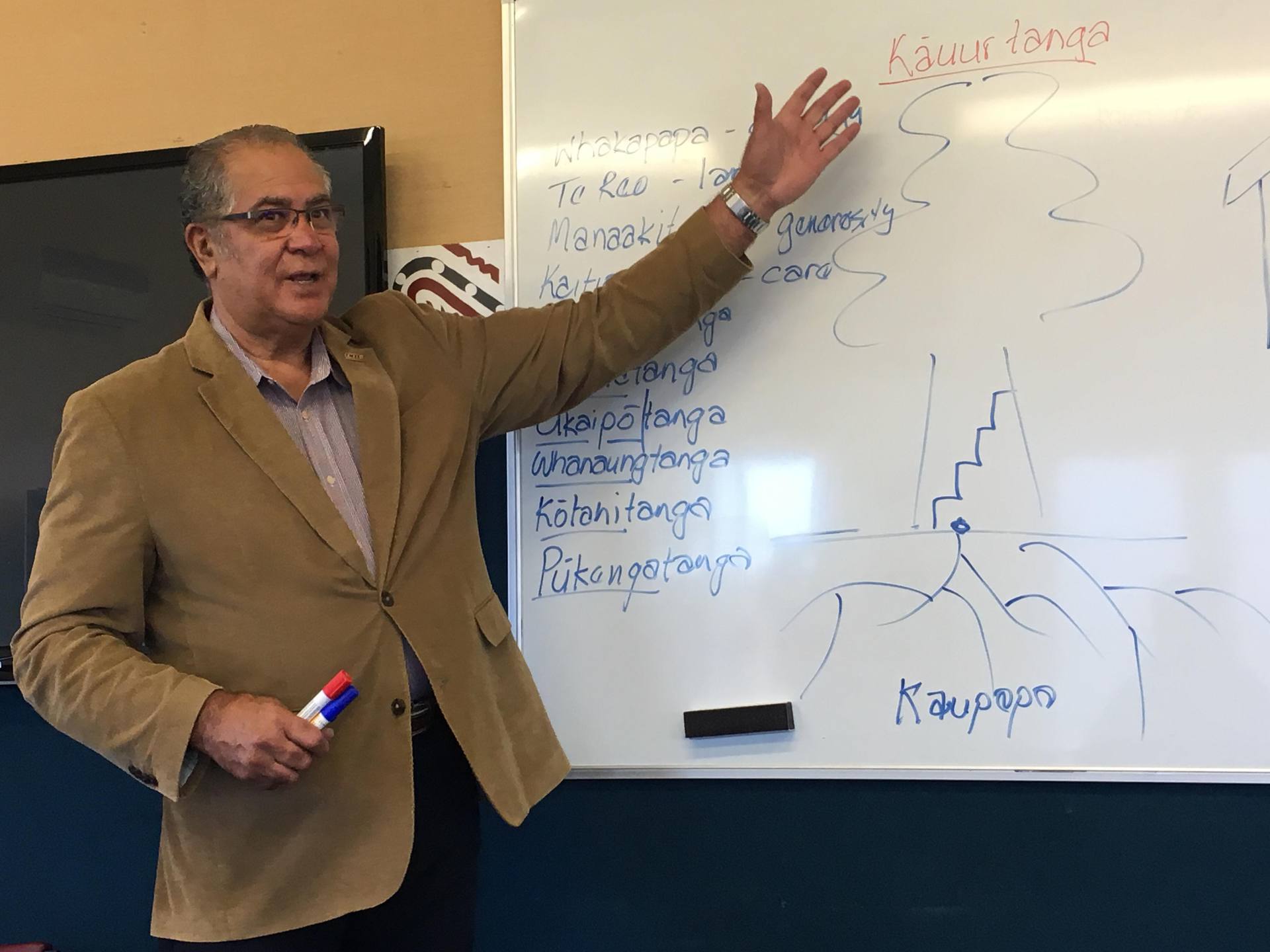


1:Dr. Jolan Hsieh signs an MoU with Dr. Wiremu Doherty, CEO of Te Whare Wānanga o Awanuiārangi on behalf of NDHU. Dr. Doherty presents a book authored and signed by the Chair of the Council and Distinguished Professor Hirini Moko Mead to NDHU
Given the demand for indigenous education against the backdrop of transitional justice, Pasuya Poiconu, Dean of the College of Indigenous Studies at National Dong Hwa University accepted a commission from Indigenous Peoples Council to assess the possibility of establishing the National Taiwan Indigenous University. This project consists of Sifo Lakaw (Pangcah), who in his role as the CEO of Hualien Indigenous Community College has built long-term connections with education institutes in New Zealand, as a research follow; Dr. Awi Mona (Seediq) and Dr. Cheng-hsien Yang, both with extensive research and practical experiences with education, as co-project investigators.
The visit to New Zealand by the Assessment Project has worked closely with the Center for International Indigenous Affairs, particularly team members of the 2017 ’Taiwan Connection: Connecting with New Zealand Education under the New South Bound Policy’ project which was commissioned by the Ministry of Education. Through collaborative channels, members of the two projects visited New Zealand together to consult with appropriate institutions regarding the establishment of the National Taiwan Indigenous University.
The primary goal of this trip is to understand the foundation of establishment, organizational structure and features of three wānanga in New Zealand: Te Wānanga o Aotearoa, Te Whare Wānanga o Awanuiārangi and Te Wānanga o Raukawa. A particular focus was paid on how these institutions are responses to the needs of Māori and grounded in Māori knowledge, cultures and values yet have gained mainstream education accreditation. In addition, the delegation also met with Ministry of Māori Affairs (Te Puni Kōkiri), Kōhanga Reo National Trust, New Zealand Qualifications Authority and Te Papa National Museum to gather information regarding indigenous higher education from a variety of important perspectives.

2:Hon Nanaia Mahuta, Parliament Member and Minister of Māori Affairs, was guest speaker at the graduation ceremonies. She visited Taiwan two years ago. Photo taken with the Taiwan delegation after the ceremonies
One of the highlights of this visit is being invited as special guests to observe the graduation ceremonies of Te Whare Wānanga o Awanuiārangi. In both pōwhiri and address by Dr. Wiremu Doherty (Chief Executive), the connection with Taiwan, specifically the collaboration with National Dong Hwa University, were mentioned as not merely a signed MoU on a piece of paper, rather, active, constructive and mutually beneficial partnership for both sides. Beginning with research collaboration and student exchange, these connections serve to strengthen and honor the ancestral relations between indigenous peoples of Taiwan and Māori. Yuma Taru, national treasure of weaving and one of the delegates, presented her work to the Council of Te Whare Wānanga o Awanuiārangi to initiate connection between weaving art between Taiwan and New Zealand.
Dr. Jolan Hsieh / Bavaragh Dagalomai (Siraya), Director of the Center for International Indigenous Affairs, in additional to traveling with the delegation to strengthen the connection with wānanga, also visited Massey University, Victoria University of Wellington, Auckland University of Technology and University of Auckland in addition to New Zealand’s Māori Center of Research Excellence (Ngā Pae o te Māramatanga) to further advance existing connections. Furthermore, to relate to the needs of indigenous students in Taiwan, visits to vocational training institutes, Māori communities, organizations and Taipei Office in New Zealand were also made with the purpose of exploring a variety of channels in correlation to the spirit of ANZTEC to build connections with higher education in New Zealand through multiple facets such as academic research and culture.

3:Dr. Hohaia Collier, Executive Director-Academic explaining the fundamental values of Te Wānanga o Raukawa
|
|

